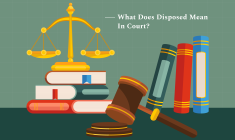Today’s topic: what is a legal separation?
Alright, let’s clear something up right off the bat—if you live in Pennsylvania and you think you’re legally separated just because you moved out or signed something between the two of you… yeah, that might not mean what you think it does.
A lot of folks are pretty surprised to find out there’s no official legal separation in PA. Seriously. There’s no form, no judge waving a gavel saying, “You’re now legally separated.” It’s just not a thing here.
And that can cause a mess—especially if you’re thinking about divorce or need to figure out money, property, or anything involving the kids.
So, if you are interested to know about what is a legal separation, you have come to the right place. Therefore, keep on reading this blog till the end…
What Is A Legal Separation?
So, here’s the deal. Unlike some other states, Pennsylvania doesn’t have an actual legal status called “legal separation.” Nothing you file in court. No official stamp on a piece of paper. It’s more of a situation than a legal thing.
Basically, what matters is when you and your spouse started living “separate and apart.” And nope, that doesn’t always mean one of you had to move out.
You could both still be in the same house, but if you’re not sharing a life anymore—separate rooms, separate finances, no more couple-y stuff—that could count.
The courts look at the details: Are you still acting like a couple? Are you handling money separately? Sleeping in different rooms? They piece it together to figure out when things actually ended.
The Misconceptions People Keep Falling For
It’s easy to see why people get this wrong—TV shows and movies always talk about “legal separation” like it’s this formal thing with paperwork. Not in PA.
Let’s clear up some of the most common mix-ups:
Myth #1: “I moved out, so that makes it legal.”
Not exactly. Moving out might be a piece of it, sure, but the courts care more about whether both of you stopped acting like you’re married. Intent matters big time.
Myth #2: “We signed a separation agreement, so that’s official.”
It’s a good start, but nope—it’s not a legal status. It just helps outline stuff like who pays what or where the kids go. It doesn’t make anything “legally separated” in the official sense.
Myth #3: “We’re still living in the same house, so we can’t be separated.”
Wrong again. You can be separated under the same roof. Weird, but true. If you’re living separate lives—emotionally and practically—that can still count.
Why This Stuff Actually Matters
Okay, so what’s the big deal with the whole separation thing if it’s not even legally recognized?
Here’s why it’s important: that “date of separation” is what everything else hinges on when it comes to divorce. Like:
- Filing for divorce: You usually have to wait a year from the separation date to file if your spouse doesn’t agree to the divorce.
- Who owns what: Stuff you or your ex buys after the separation date might not be considered shared property anymore.
- Alimony: The length of your marriage can affect whether spousal support is paid, and for how long.
So if you get the separation date wrong, it can throw a wrench into everything.
So… What Should You Actually Do?
Even if there’s no official court document for separation, there are still smart moves to make:
- Put it in writing: Send a text, an email—anything that shows when you said, “Hey, this marriage is over.” It’s not fancy, but it helps if there’s ever a dispute later.
- Keep your stuff separate: Open your own bank account. Stop using joint cards. Basically, draw the financial line between you and your spouse.
- Sleep in different rooms (if you’re still under one roof): Yep, even this counts. Judges will look at little things like this when figuring out if you’re really separated.
- Get legal advice sooner, not later: Even if you’re not 100% sure what you want long term, talking to a family lawyer can clear up a ton of confusion and help you avoid costly mistakes.
Should You Write Up a Separation Agreement?
You totally can—and for a lot of couples, it helps. Even though it’s not a legal requirement in Pennsylvania, having something in writing that lays out who’s paying for what, where the kids are staying, etc., can save you both a lot of stress (and arguing).
Think of it more like a roadmap than a legal document. It just helps keep things moving smoothly while you’re in this limbo stage.
Psst… For a detailed explanation of the legal separation process, Alpha Center for Divorce Mediation provides a comprehensive guide that walks you through each step and consideration.
When the Courts Step In (Kind Of)
If things go to court later—like a full-on divorce—judges will look at all kinds of stuff to figure out when the separation really started. That includes:
- Are you still sleeping together?
- Do friends and family still think you’re a couple?
- Are your finances still tied up together?
- Any written proof either of you said the relationship was done?
And if one of you says it ended on one date and the other says something totally different… yeah, that gets messy. Best to be clear and have some kind of record, just in case.
Separation vs. Divorce: What’s the Real Difference?
Let’s lay it out plain and simple:
| Thing | Separation in PA | Divorce |
| Legal status? | Nope | Yep—marriage officially over |
| Can remarry? | No | Yes |
| Split assets? | Kinda, depends on the situation | Yes, permanently divided |
| Health insurance stays? | Usually | Usually not |
| Financial ties? | Might still exist | Generally cut off |
So yeah—being separated doesn’t mean you’re divorced. And assuming it does? That can cause some real issues.
Your Legal Guide: Don’t Wing It
Now that you are aware of what is a legal separation, you might have already understood one thing!
And that’s the fact that this stuff is confusing—like, way more than most people expect. And trying to figure it all out on your own based on what your friend’s cousin did in another state? Not the move.
If you’re stuck or just not sure what counts as “separated,” talk to someone who actually knows this stuff. A good lawyer (or even a mediator) can give you straight answers and help you avoid stepping into a legal minefield.
Because honestly, figuring this out now—before it spirals—is way easier than cleaning up a mess later.
Read Also:
















